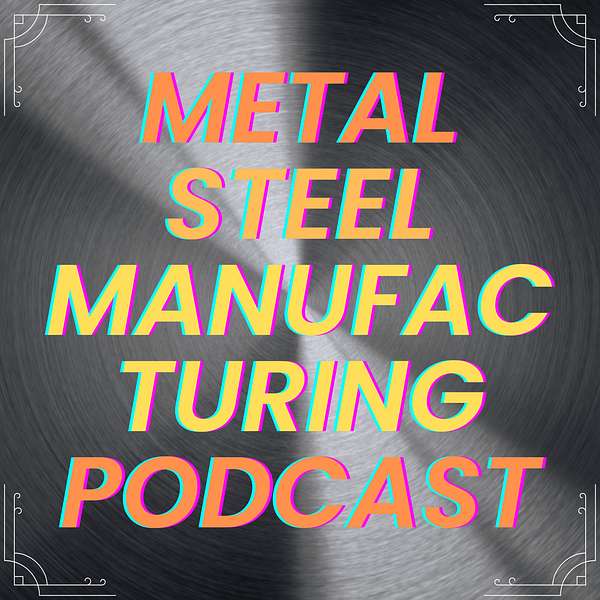
Metal Steel Manufacturing Podcast
Welcome to the Metal Steel Manufacturing Podcast. We're here to show the world how valuable the manufacturing, metal, and steel industries are. Without this industry, society wouldn't be where we are today; it makes our daily lives possible. We are the forgotten industry and highly undervalued in today's market, collective, and zeitgeist. It's time to change that. Most importantly, to give a platform and pay it forward to the undiscovered leaders, experts, and change-makers who bring purpose, new thought, innovation, and new mindsets not shared enough within trades. I'm Greg Sheldon, 21 years strong in the metal, steel, and manufacturing industry, whether hands-on tools, fabrication, welding & wrenching to design, installation, finishing work or sales, strategy, vision, and leadership. I'm here to ditch the small talk and reignite the excitement for manufacturing and trade in North America.
Metal Steel Manufacturing Podcast
The Future of Additive Manufacturing: A Conversation with John Barnes
Unveiling the Transformative Power of Additive Manufacturing: A Deep-Dive into Fused Deposition Modeling and Metal 3D Printing with Industry Expert John Barnes.
Visit the following links to connect with John and his company:
https://www.barnesglobaladvisors.com/
https://www.linkedin.com/in/johnebarnesam/
As a revolutionary technology, additive manufacturing, commonly called 3D printing, has experienced remarkable advancements since the 1990s. As digital workflows improve and process technologies expand, the industry continues to grow at an annual rate of over 20 percent.
Additive manufacturing's applications are broad and varied, from prototyping to creating intricate, avant-garde designs. This innovative process encompasses the entire value-add supply chain, from material input to post-processing steps like thermal treatment, machining, and inspection.
In this transformative field, design thinking requires a shift from traditional subtractive manufacturing to a mindset of adding material as needed. Aspiring professionals can stand out to potential employers through formal training or education in additive manufacturing.
One benefit of additive manufacturing is the capacity to fabricate complex components and perform empirical flow tests, reducing dependence on complex analytical solutions reliant on boundary conditions. This becomes crucial when parts are hard to acquire, or multiple components can be merged into a single unit.
Despite its advantages, the productivity constraints of additive manufacturing limit the widespread adoption of 3D printing. However, it excels in solving problems related to bespoke items, small production runs, and customized components. Industries such as aerospace and defense express keen interest due to their need for hundreds to thousands of parts annually rather than millions.
In generative design, AI and machine learning optimize the design process, though human intervention remains necessary to ensure design functionality. The complexity of modern manufacturing necessitates collaboration and a multidisciplinary team of materials engineers to handle the diverse processes and materials involved.
For those drawn to the additive manufacturing industry, thorough research, education, and networking are essential. Barnes Global Advisors provide valuable training and resources on their website and, in partnership with Purdue University, offers an online additive certificate program.
In conclusion, while additive manufacturing has made significant strides over the past few decades, it still holds vast potential for growth and evolution. Equipped with the proper education and a collaborative spirit, the industry's future innovators can expect a bright future in additive manufacturing.
#additivemanufa
This podcast is about creating awareness and recognizing the industrial space like metal, steel, manufacturing, and welding; while providing value to help you in your career and business endeavors.
Greg Sheldon
https://www.facebook.com/metalsteelmanufacturingpodcast
https://www.instagram.com/metalsteelmanufacturingpodcast
https://twitter.com/metalsteelpod
https://www.youtube.com/channel/UC1d1DruXYETxna6GWtBBVng
https://www.tiktok.com/@metalsteelmanufac